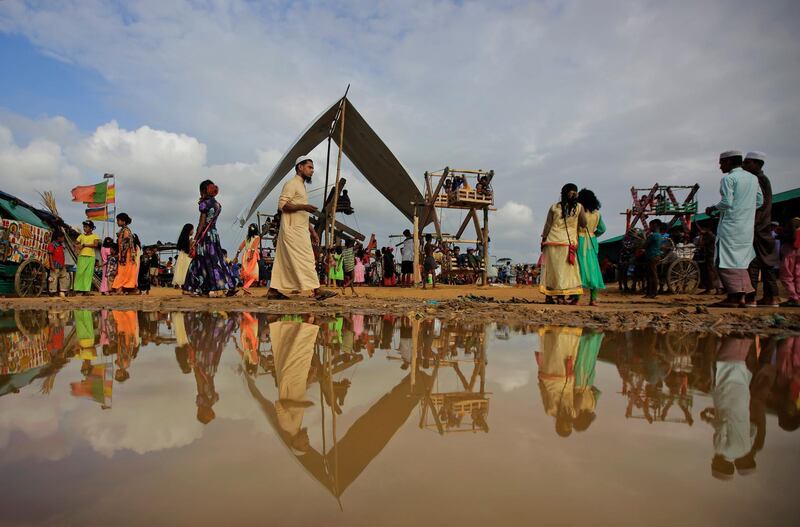Rohingya refugee children who lack proper education in camps in Bangladesh could become a “lost generation”, the United Nations said on Thursday, a year after Myanmar’s army began a crackdown that has forced more than 700,000 people to flee the country.
The lives and futures of more than 380,000 children in refugee camps in Bangladesh are in peril, while hundreds of thousands of Rohingya children still in Myanmar are cut off from aid, said a report by the UN children’s agency (UNICEF).
Bangladesh prohibits refugees from receiving formal education, because the government is concerned that the predominantly Muslim Rohingya population may become a “permanent fixture”, according to UNICEF spokesman Alastair Lawson-Tancred.
At the outset of the refugee crisis, aid agencies set up informal learning centres for children aged 3 to 14, but older teenagers feel alienated and hopeless, Mr Lawson-Tancred said.
_______________
Read more:
[ Aung San Suu Kyi says Rohingya return depends on Bangladesh ]
[ Why neither Myanmar or Bangladesh wants to deal with the Rohingya crisis ]
_______________
“Unquestionably, there is a danger that we might be facing a lost generation,” he told the Thomson Reuters Foundation by phone from Bangladesh’s Cox’s Bazar district.
“Sooner or later, you’re going to have large groups of disaffected youth on your hands.”
Most of the refugees crossed the border within the first four months of military operations, which began after Rohingya insurgents launched deadly attacks on security forces in the frontier state of Rakhine on August 25, 2017.
Myanmar officials have repeatedly denied that soldiers carried out atrocities against Rohingya civilians, which have been documented by activists and include rape, murder and arson.
One in two Rohingya children who fled to Bangladesh without their parents were orphaned by violence, while more than 6,000 children living in Cox’s Bazar are alone or having to fend for themselves, a study by charity Save the Children said this week.
Aid agencies have managed to provide basic services, but the crisis is far from over, with refugees in overcrowded camps at risk of floods, landslides and disease, according to UNICEF.
The British charity Oxfam warned that some basic facilities such as toilets and showers - which often have no locks, doors or roofs - pose safety and health risks to Rohingya women.
Many avoid trips to the makeshift facilities fearing sexual harassment - meaning they go hungry and thirsty, suffer severe stomach aches, and risk outbreaks of disease by using rags during their periods and defecating outside their tents.
Hundreds of sexual violence cases are reported each week Cox’s Bazar, Oxfam said in a statement this week.
“Women and girls are now paying the price in terms of their well-being and safety,” said Oxfam’s Dorothy Sang.
Sarah-Jane Saltmarsh, a spokesperson for Bangladesh-based aid agency BRAC, said more lighting in the camps, where there is no round-the-clock grid electricity, is key for female safety.
“The real problem is when they (women and girls) are accessing those facilities in the dark,” she said. “That is when there is more danger, especially during the monsoon season.”





